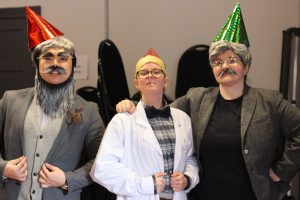The fourth workshop of the ‘Transformations’ series explored ideas about different spaces and settings, the lines between private and public, and medical and community spaces in the past and the present. Continue reading
History workshops
History Workshop 3: Stories and Scripts, 23rd March 2019
The third workshop of the ‘Transformations’ series was dedicated to the topic of stories and narratives. We tackled broad questions about the ways in which scripts can be used to represent sexual and gender identities in different contexts, how some scripts confine us whereas others allow us important opportunities to express ourselves.
History Workshop 2: Language, Labels and Categories, 16th March 2019
We live in a world with many labels for gender and sexual identities. But where did they come from? Some of them originate in the late nineteenth and early twentieth century, when people, a lot of them scientists or medical doctors, invented a wide range of new labels and categories. The second workshop of the ‘Transformations’ series explored the history of labels for gender and sexuality – looking at who created them, who has used them, and why. Continue reading
History Workshop 1: Bodies and Hormones, 9th March 2019
During the first workshop that kickstarted the ‘Transformations’ workshops series, we travelled back in time and explored texts, images, narratives, photographs and artwork from the Classical, Medieval and Modern periods. Continue reading
Workshops on the history of gender and science: Bristol, March 2019

In March 2019 we held a series of four workshops, each on a different theme relating to the history of gender and medicine. From autobiographical accounts of people transitioning at the start of the 20th century, to photos from inside the first Institute for Sexual Science in 1920s and 1930s Berlin, we examined, interrogated and creatively played with materials from the past. This helped us to think in new and interesting ways about gender and sex today and to ask questions such as what do medical frameworks give us, and what do they leave out, ignore, and obscure in both historical and contemporary contexts?
The workshops were a collaboration between Jason Barker, Gendered Intelligence and the University of Exeter. Continue reading
